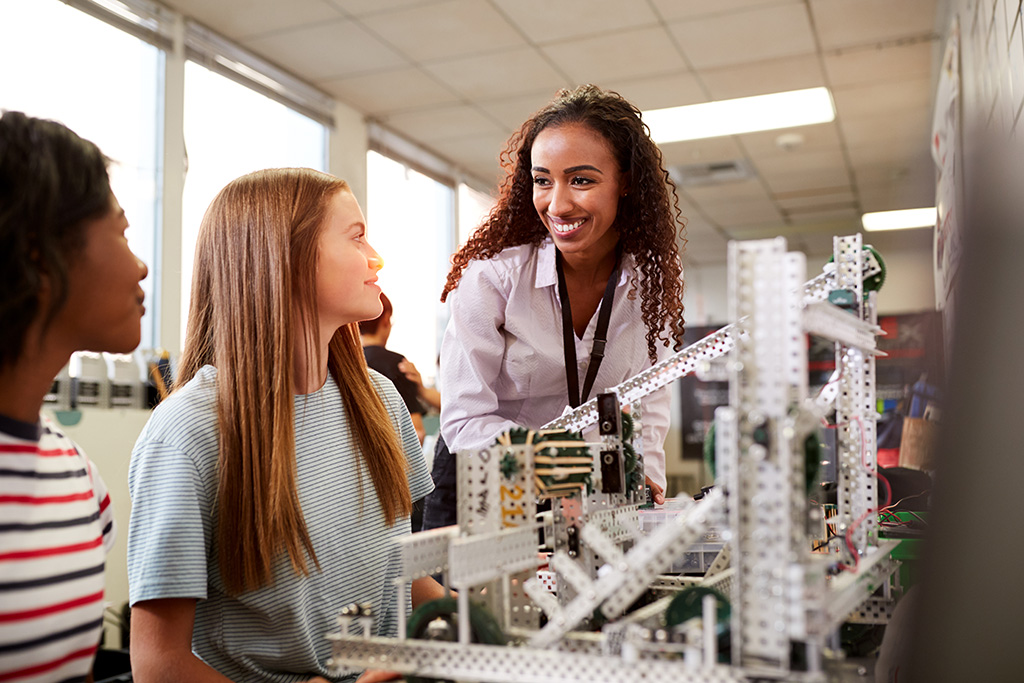Freebies and Opportunities for Science and STEM Teachers, August 6, 2024
By Debra Shapiro

Cultivating a Culture of Belonging in Science
By Maria Ong, Ph.D.
Posted on 2024-07-29

Nia’s Painful Breast
Breast Anatomy, Lactation, and Mastitis
By Jenna Ridlen, Sharifah Albraiki , Sarah Ellis, Jocelyn A. Moore, Anusree Mukherjee

Freebies and Opportunities for Science and STEM Teachers, July 30, 2024
By Debra Shapiro

SP25: Designing Equitable, 3D, Curriculum-Anchored Assessments: Topic Study for K-12 Educators
Do you want to design an engaging, three-dimensional assessment that you can use in your classroom that is connected to your instructional materials and coherent from the perspective of your students?
Do you want to design an engaging, three-dimensional assessment that you can use in your classroom that is connected to your instructional materials and coherent from the perspective of your students?
Do you want to design an engaging, three-dimensional assessment that you can use in your classroom that is connected to your instructional materials and coherent from the perspective of your students?
Do you want to design an engaging, three-dimensional assessment that you can use in your classroom that is connected to your instructional materials and coherent from the perspective of your students?
Do you want to design an engaging, three-dimensional assessment that you can use in your classroom that is connected to your instructional materials and coherent from the perspective of your students?
WI25: Supporting Student Sensemaking with the Crosscutting Concepts: Topic Study for K-12 Educators
Students who use CCCs regularly build confidence in their science practices and develop a stronger sense of science identity. Each session presents participants with the opportunity to consider the different ways in which the CCCs can be used in the classroom for science instruction and assessment.
Program outline:
Students who use CCCs regularly build confidence in their science practices and develop a stronger sense of science identity. Each session presents participants with the opportunity to consider the different ways in which the CCCs can be used in the classroom for science instruction and assessment.
Program outline:
Students who use CCCs regularly build confidence in their science practices and develop a stronger sense of science identity. Each session presents participants with the opportunity to consider the different ways in which the CCCs can be used in the classroom for science instruction and assessment.
Program outline:
Students who use CCCs regularly build confidence in their science practices and develop a stronger sense of science identity. Each session presents participants with the opportunity to consider the different ways in which the CCCs can be used in the classroom for science instruction and assessment.
Program outline:
Students who use CCCs regularly build confidence in their science practices and develop a stronger sense of science identity. Each session presents participants with the opportunity to consider the different ways in which the CCCs can be used in the classroom for science instruction and assessment.
Program outline:
FA24: Making Sense of Three-Dimensional Teaching and Learning: Topic Study for K-12 Educators
This web seminar series, scheduled on October 22, 29, November 12, and 19, 2024, from 7:00 PM to 8:30 PM Eastern time, provides educators and administrators the opportunity to develop or deepen* an understanding of the three-dimensions of teaching and learning through immersions in high-quality instructional materials, analysis of classroom videos and vignettes, and individual and guided reflection on science instructional shifts necessitated by the adoption of the NGSS.
This web seminar series, scheduled on October 22, 29, November 12, and 19, 2024, from 7:00 PM to 8:30 PM Eastern time, provides educators and administrators the opportunity to develop or deepen* an understanding of the three-dimensions of teaching and learning through immersions in high-quality instructional materials, analysis of classroom videos and vignettes, and individual and guided reflection on science instructional shifts necessitated by the adoption of the NGSS.
This web seminar series, scheduled on October 22, 29, November 12, and 19, 2024, from 7:00 PM to 8:30 PM Eastern time, provides educators and administrators the opportunity to develop or deepen* an understanding of the three-dimensions of teaching and learning through immersions in high-quality instructional materials, analysis of classroom videos and vignettes, and individual and guided reflection on science instructional shifts necessitated by the adoption of the NGSS.
This web seminar series, scheduled on October 22, 29, November 12, and 19, 2024, from 7:00 PM to 8:30 PM Eastern time, provides educators and administrators the opportunity to develop or deepen* an understanding of the three-dimensions of teaching and learning through immersions in high-quality instructional materials, analysis of classroom videos and vignettes, and individual and guided reflection on science instructional shifts necessitated by the adoption of the NGSS.
This web seminar series, scheduled on October 22, 29, November 12, and 19, 2024, from 7:00 PM to 8:30 PM Eastern time, provides educators and administrators the opportunity to develop or deepen* an understanding of the three-dimensions of teaching and learning through immersions in high-quality instructional materials, analysis of classroom videos and vignettes, and individual and guided reflection on science instructional shifts necessitated by the adoption of the NGSS.
Archive: FA24: Catching Up & Charging Ahead: Safely Using Li-Ion Batteries in Our School Classrooms/Laboratories, October 28, 2024
Lithium-ion (Li-ion) batteries have an increased presence in our school classrooms and laboratory instructional spaces, including cell phones, tablets, laptops, and equipment. However, Science/STEM teachers nationwide are forced to adopt and make use of new technologies like Li-ion batteries without the resources, training, and supervision to properly prepare our students and staff to purchase, store, charge, maintain, and dispose of these batteries.
Lithium-ion (Li-ion) batteries have an increased presence in our school classrooms and laboratory instructional spaces, including cell phones, tablets, laptops, and equipment. However, Science/STEM teachers nationwide are forced to adopt and make use of new technologies like Li-ion batteries without the resources, training, and supervision to properly prepare our students and staff to purchase, store, charge, maintain, and dispose of these batteries.
Lithium-ion (Li-ion) batteries have an increased presence in our school classrooms and laboratory instructional spaces, including cell phones, tablets, laptops, and equipment. However, Science/STEM teachers nationwide are forced to adopt and make use of new technologies like Li-ion batteries without the resources, training, and supervision to properly prepare our students and staff to purchase, store, charge, maintain, and dispose of these batteries.
Lithium-ion (Li-ion) batteries have an increased presence in our school classrooms and laboratory instructional spaces, including cell phones, tablets, laptops, and equipment. However, Science/STEM teachers nationwide are forced to adopt and make use of new technologies like Li-ion batteries without the resources, training, and supervision to properly prepare our students and staff to purchase, store, charge, maintain, and dispose of these batteries.
Freebies and Opportunities for Science and STEM Teachers, July 23, 2024
By Debra Shapiro



